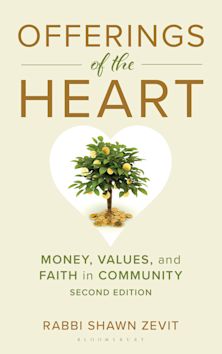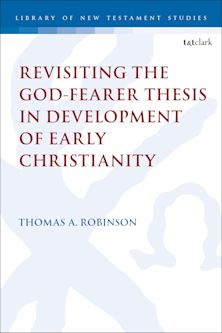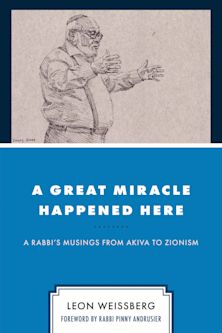- Home
- ACADEMIC
- Religious Studies
- Judaism
- Judaic and Christian Visions of the Social Order
Judaic and Christian Visions of the Social Order
Describing, Analyzing and Comparing Systems of the Formative Age
Judaic and Christian Visions of the Social Order
Describing, Analyzing and Comparing Systems of the Formative Age
This product is usually dispatched within 3 days
- Delivery and returns info
-
Free US delivery on orders $35 or over
You must sign in to add this item to your wishlist. Please sign in or create an account
Description
Free-standing ideas form systems when random facts coalescing in a set of abstract propositions can be shown logically to cohere. We know that that is so when ideas intersect and can be shown to accommodate new problems and generate answers to fresh questions. The system exhibits its cogency by fixing upon one thing and saying it in many ways. That emerges when the evidence of a particular conception of the social order turns out to concern itself with a generative question and to recapitulate an answer that is repeated many times over. In that way the writings that in theory form a system of the social order signal their logic by what they deem self-evident. The essays address writings of formative Judaism in the time of the Mishnah and the Talmud, the first six centuries of the Common Era, and formative Christianity in the first six centuries of the Common Era. They take up a common program of categories and consequent convictions: where Judaism and Christianity intersected. This seeks not just random points of agreement but fundamental structural congruence: the confluence of systems. That inquiry concerns shared organizing categories of religion and ethics of the two faiths. What concerns us is how Scriptures held in common produced a single construction of history and a common view of culture and society.
Table of Contents
Chapter 1. Foreword: How Does Religion Imagine Society?
Ancient Israel
Chapter 2. From the Repertoire of the Hebrew Bible: Visions of the Social Order
Judaism
Chapter 3. Enoch's Vague Visions of a Future Social Order; Foils to its Vivid Portrayals of the Present Chaos
Chapter 4. Visions of the Social Order: The Qumran Library
Chapter 5. Through Greek Eyes: Jewish "Theocracy" and "State of the Wise"
Chapter 6. Philo's Constructs of Social Order
Chapter 7. The Mishnah and Concepts of the Social Order
Chapter 8. The Social Vision of Rabbinic Judaism
Chapter 9. Torah and Culture: H. Richard Niebuhr's Christ and Culture after Fifty Years: A Judaic Response
Chapter 10. Six People You Meet in the Synagogue: Visions of Social Order in Early Rabbinic Prayer
Christianity
Chapter 11. The Kingdom of God
Chapter 12. Paul's Theory of the Social Order
Chapter 13. Early Christian Martyrdom, Scripture, and Social Order
Chapter 14. Irenaeus of Lyons (130-200) Re-Imagining the Cosmos from the Perspective of the Oppressed
Chapter15. Origen's Social Vision of Christian Life
Chapter 16. Eusebius's (and Constantine's) Theory of the Political Order
Chapter 17. Augustine of Hippo (354-430): Architect of Western Christianity's Political Theology
Conclusinos
Chapter Conclusions, Observations, and Limitations: Reflections on the Visions of the Social Order Collaborative Project
Product details
| Published | Sep 06 2011 |
|---|---|
| Format | Paperback |
| Edition | 1st |
| Extent | 388 |
| ISBN | 9780761856351 |
| Imprint | University Press of America |
| Dimensions | 9 x 6 inches |
| Series | Jacob Neusner Series: Religion/Social Order |
| Publisher | Bloomsbury Publishing |



































